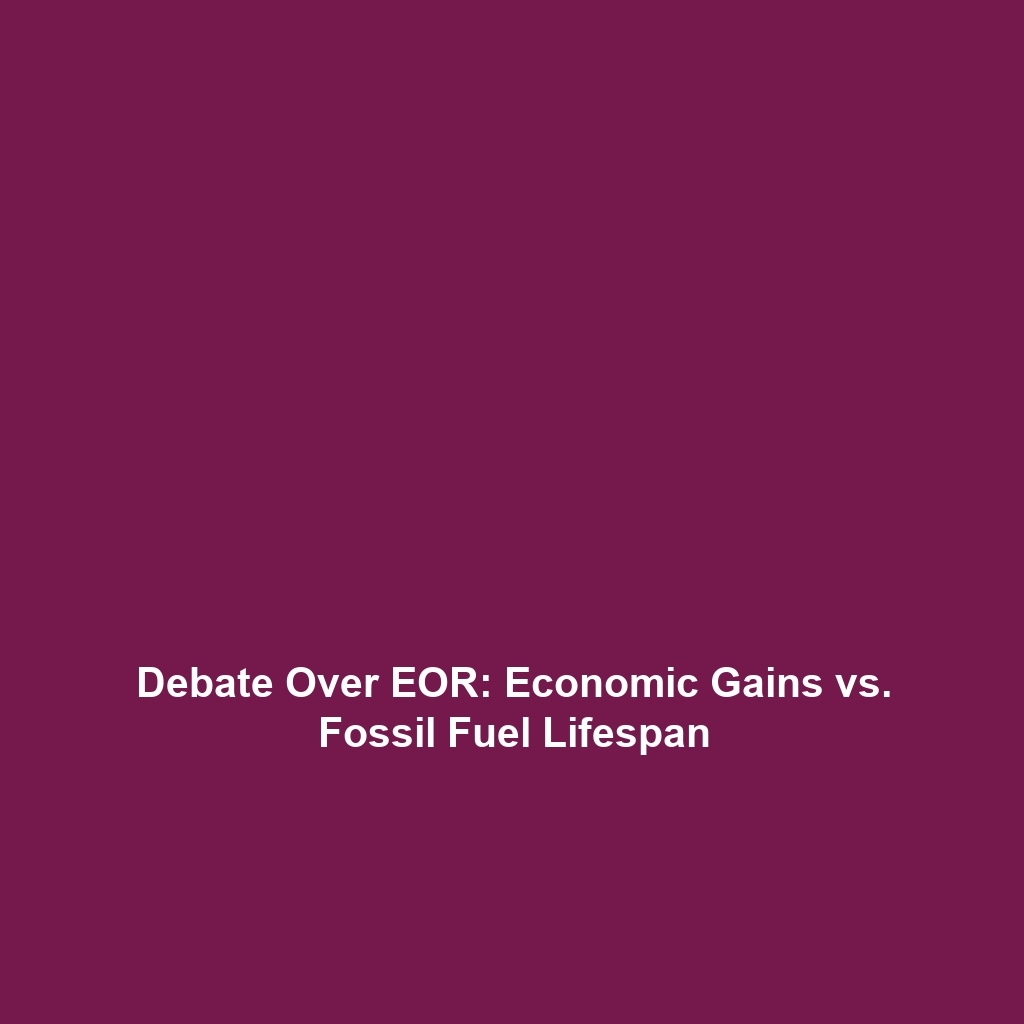Debate over EOR: Economic Benefits vs. Fossil Fuel Extraction
The debate surrounding Enhanced Oil Recovery (EOR) is a critical issue in the realm of Carbon Capture and Storage (CCS). While EOR presents substantial economic advantages, critics argue that it inadvertently prolongs fossil fuel extraction, contradicting global sustainability goals. This article delves into the complexities of this issue, examining its implications within CCS and the broader perspective of climate change and energy transition.
Key Concepts in the Debate over EOR
Enhanced Oil Recovery (EOR) is a technique that involves the injection of substances into oil fields to stimulate and increase oil production. Within the framework of Carbon Capture and Storage (CCS), EOR is significant for several reasons:
- Economic Incentives: EOR can significantly boost the profitability of oil extraction, making it an attractive option for energy companies.
- Carbon Sequestration: The process can utilize captured carbon dioxide (CO2), allowing it to be stored underground rather than being released into the atmosphere.
- Fossil Fuel Dependency: Critics contend that EOR extends the life of fossil fuel assets, delaying the transition to renewable energy sources.
How EOR Fits into CCS
In the broader landscape of Carbon Capture and Storage, EOR serves as a double-edged sword. While it offers a method of utilizing captured carbon, it also raises ethical questions regarding the sustainability of continued fossil fuel extraction.
Applications and Real-World Uses
The applications of EOR in the context of CCS are notable, especially in regions heavily reliant on fossil fuels. Here are some practical uses:
- Oil Fields: Many existing oil fields are using EOR techniques to extract additional oil while sequestering CO2, combining economic and environmental goals.
- Enhanced Recovery Projects: Innovative projects, such as those in classic oil states like Texas and California, showcase how EOR processes are applied in practice.
Understanding how EOR is used in Carbon Capture and Storage enriches the dialogue on achieving net-zero emissions while addressing economic needs.
Current Challenges in Applying EOR
Despite its advantages, there are challenges associated with enhancing oil recovery within the CCS framework:
- Environmental Concerns: The injection of CO2 can lead to groundwater contamination if not managed properly.
- Economic Viability: The high costs associated with EOR can deter investment, particularly in a fluctuating oil market.
- Regulatory Hurdles: Different regulations concerning CO2 storage and seismic activities can complicate project implementation.
Future Research and Innovations
Future research into EOR and its integration with CCS is crucial for advancing sustainable energy solutions. Key areas of innovation include:
- Advanced Monitoring Techniques: New technologies for tracking CO2 injection and storage to enhance safety and efficiency.
- Alternative Capture Techniques: Developing methods that could improve the effectiveness of carbon capture in EOR processes.
- Policy Frameworks: Research aimed at creating supportive regulatory environments to facilitate EOR without exacerbating fossil fuel dependence.
Conclusion
The debate over Enhanced Oil Recovery presents a significant challenge within the context of Carbon Capture and Storage. While it offers economic advantages, the prolongation of fossil fuel extraction raises critical concerns that must be addressed as we strive toward a more sustainable future. Engaging with this topic encourages further exploration into effective solutions that balance economic and environmental needs.
For further reading on related topics in Carbon Capture and Storage, visit our articles on CCS Technologies and The Impact of Fossil Fuels on Climate Change.
